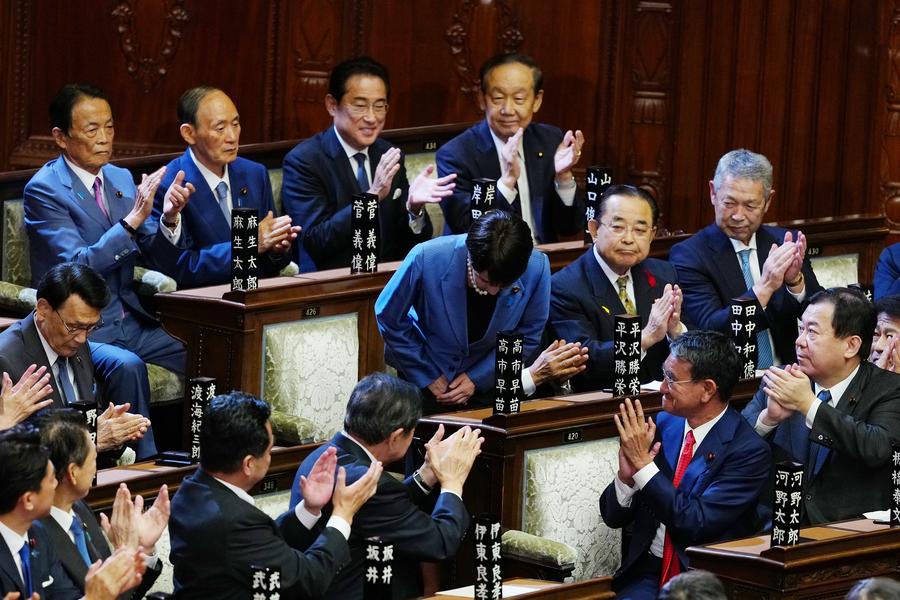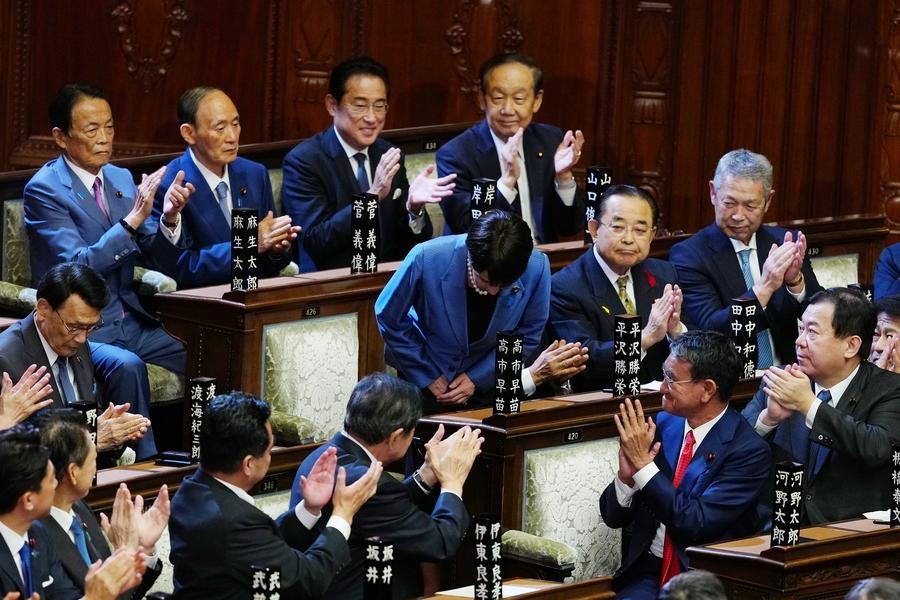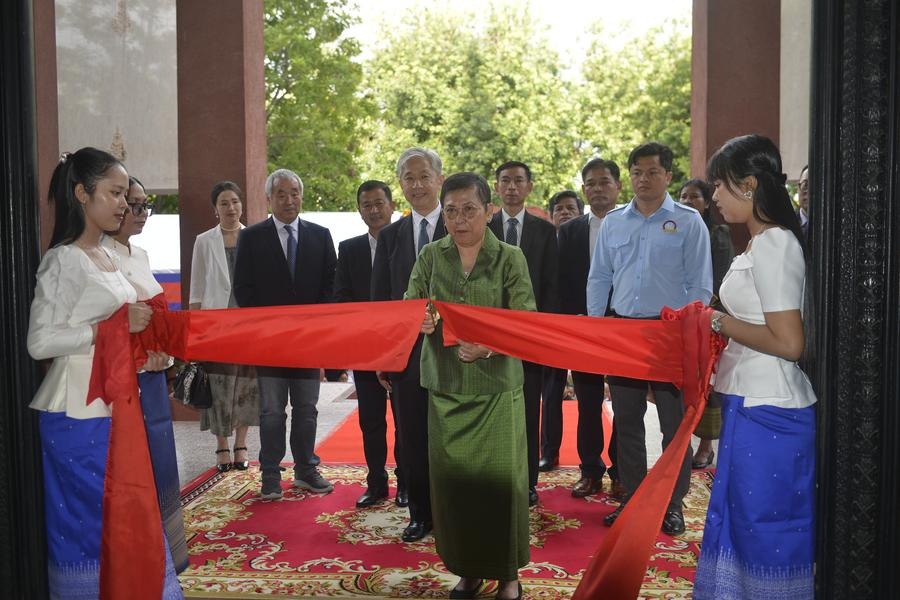Scholars slam Japan's PM for Taiwan remarks
Takaichi's stance infringes on Beijing's core interests, strains relations: Experts


Scholars in Japan have voiced concern over Japanese Prime Minister Sanae Takaichi's recent remarks in parliament regarding China's Taiwan province, warning that her words infringe on China's core interests, seriously strain relations between the two countries, and could start a chain of negative repercussions.
Takaichi, responding to a question at a parliamentary session on Nov 7, said a Taiwan emergency involving the use of military force from the Chinese mainland could constitute a "survival-threatening situation" for Japan, suggesting that Japan might intervene militarily in the Taiwan Strait.
Ukeru Magosaki, director of the East Asian Community Institute and a former senior official at Japan's Ministry of Foreign Affairs, told China Daily that the Taiwan question is a core interest of China, and any provocation will inevitably elicit a strong response from China.
He said some Japanese public opinion mistakenly assumes that regardless of how Japan voices its position, China will not take substantive action.
Meanwhile, China has notified Japan that it is suspending imports of Japanese aquatic products, Foreign Ministry spokeswoman Mao Ning said on Wednesday in Beijing, citing Japan's failure to provide promised technical materials.
She also criticized recent "erroneous" remarks by Takaichi related to the Chinese province of Taiwan, saying they triggered strong public indignation in China.
"Given the current situation, even if Japanese aquatic products were exported to China, there would be no market for them," Mao added.
Magosaki said that Japanese society will gradually come to realize that China's stance "is far more resolute than many people think".
He also warned that possible outcomes include reductions in the number of Chinese tourists, an impact on trade, and increased pressure on Japanese companies that operate in China.
Starting on Nov 15, the Chinese Foreign Ministry, along with the Chinese embassy and consulates in Japan, the Ministry of Culture and Tourism, and the Ministry of Education, issued a series of alerts urging Chinese citizens to exercise heightened caution, later advising them to avoid traveling to Japan altogether.
Takaichi's remarks "will not bring any positive effects" to China-Japan relations, said Hiroshi Shiratori, a political science professor at Hosei University in Tokyo.
He noted that there already are calls within China to take countermeasures, such as suspension of Japan-oriented study-abroad programs.
Shiratori warned that if Chinese authorities signal that traveling to Japan is inadvisable, Japan's reputation as a "safe" destination could be undermined, adding that people-to-people exchanges and mutual understanding may also be hindered.
Protest lodged
The Tokyo-based Japan-China Friendship Association issued a statement on Monday condemning Takaichi's "erroneous" remarks, saying her comments had further heightened tensions in Japan-China relations. The association lodged a strong protest and demanded that Takaichi retract her statements.
In the protest statement, the association emphasized that the Taiwan question is China's internal affair. It said Takaichi's reference to a so-called "survival-threatening situation" amounted to interference in China's internal affairs.
The association added that it has formally urged the Japanese government to take prompt action to improve the current situation in accordance with the four political documents that underpin Japan-China relations.
Despite repeated calls by China to do so, Takaichi has refused to retract her remarks.
Noriyuki Kawamura, an emeritus professor at Nagoya University of Foreign Studies, said that Takaichi's remarks on Taiwan are tantamount to "announcing war on China".
This represents a clear break from the precedent set by previous Japanese governments on the Taiwan question, Kawamura said.
He explained that Japan has traditionally adhered to the principle of "exclusive defense" under its pacifist Constitution and has never explicitly included the Taiwan question within the scope of collective self-defense.
Takaichi's remarks not only interfere in China's internal affairs but also violate the one-China principle, he added.
Kawamura noted that during the APEC Economic Leaders' Meeting held on Oct 31 and Nov 1, the leaders of China and Japan agreed to advance the strategic reciprocal relationship.
However, the following day, Takaichi met with personnel of the authorities of China's Taiwan province and hyped it on social media, undermining the outcomes of the China-Japan talks.
She then made sensitive remarks in parliament, creating what Kawamura called a "double error".
houjunjie@chinadaily.com.cn
































